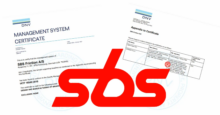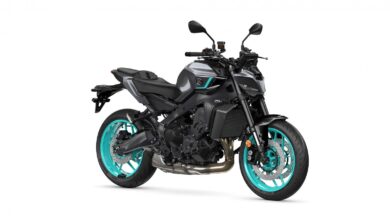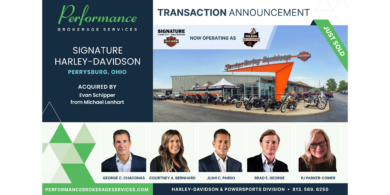Apr. 6, 2009 – How to avoid the legal pitfalls
By Jon Mohr
Contributing writer
By some estimates, the number of lawsuits that will be filed this year in state courts across the United States may exceed 15 million, which works out to one lawsuit for every 12 American adults.
Given those odds, a business that has not done all it can to protect itself with adequate insurance coverage, watertight waivers and legal agreements that lay a first line of defense against litigation is living very dangerously.
“Most dealers are never told by their agents, ‘Hey, you have a huge exposure here,’” said Hank Ham, owner of the Henry Ham Agency Inc., a Denver-based independent insurance broker. “Through no fault of the dealer, yes, they have issues. And they usually don’t find out about it until there’s a catastrophic loss.”
Powersports Business interviewed Ham to learn about lesser-known policies and procedures dealers may not know about. Here are a few to consider if you haven’t already:
Physical damage coverage
This type of coverage is for dealer-owned rolling stock. It can be new bikes, used bikes, shop trucks, trailers, anything with wheels that the dealer owns, falls under this category. While some dealerships will have floor-plan programs that often include physical damage, they have to be careful because while some of those programs may cover new bikes on the floor, they may not cover used bikes, shop trucks, consignments or the vehicles dealer principals often drive with “D” tags on them.
And the programs may also only cover a new unit until it is sold. For example, when a dealership sells a motorcycle on Friday – but the customer can’t pick it up until Monday – if anything bad happens to it on Saturday, the dealer may not be covered.
“Honestly, floor-planned, physical-damage programs can be pricey and are often weighted toward the benefit of the floor-plan people, not the dealer,” said Ham. “The dealer can have a better product, have control of that product, and have fewer gaps or gray areas, if they have one phys-dam program for all their stuff: new, used, trade-ins, shop trucks, fill-in-the blank. If the dealer owns it, it will have the coverage.”
Vendor’s endorsement
Ham says a vendor’s endorsement is not something the dealership itself would carry, but is attached to the policy of the manufacturer of bikes and/or components and extends the liability of the manufacturer to its dealer network. If there is a lawsuit, the manufacturer’s insurance carrier basically takes the dealer under its wing, provides their defense and pays the claim if necessary.
“A vendor’s endorsement is good to get because it will protect the dealer from claims or allegations that should be defended or paid from the manufacturer’s side.” Ham said. “As that endorsement comes from the manufacturer, you should ask for it. Ninety-nine percent of the manufacturers, whether it’s component manufacturers or complete bike manufacturers, will have as part of their policy the vendor’s endorsement.”
However, there can be a catch. If the dealer modifies a unit – if the customer wants new bars on it, for example – and takes it right from the sales floor to the service area and “puts hands on it,” other than just the initial setup of taking it out of the box and prepping it, then there may be less participation from the vendor’s endorsement.
“The manufacturer, or the insurance company of the manufacturer will say, ‘Wait a minute,’” Ham explained. “You guys had your fingers on this, not our problem anymore.’”
Custom-bike building
Ham called this area “a potential train wreck for uninformed dealers.” In the case of dealers who also may build bikes, Ham says most single dealer’s policies will exclude the manufacturing of motorcycles from product liability.
“The problem is compounded, because the garage policy does provide product liability for the parts that they sell, the parts that they use,” Ham said. “Selling parts off the shelf will have product liability, installing parts on a bike will have product liability, but when it comes to manufacturing or ‘assembling,’ it’s a different breed of cat. And they have to be very careful of that.”
His advice is to break that segment of the business off into its own separate segment, give it a different name, a separate federal ID number, separate everything and then get a separate product liability policy for the manufacturer of those motorcycles. But dealers must be serious about the manufacturing portion of their businesses, because those policies start at about $10,000.
Business income/extra expense coverage
This is insurance Ham believes a dealership almost has to have. Say there’s a fire or another unforeseen event that puts a company out of business for a period of time. Yes, the facility and inventory are insured, but what about the loss of income while closed and the ongoing expenses while rebuilding? This coverage will pay for lost profits, continuing expenses, payroll, etc., until the business is back up and running.
A variant of this is coverage that protects a business that is damaged and has to rebuild to comply with the rules and regulations outlined in the Americans with Disabilities Act and/or the current building codes. The rules differ from state to state and even between counties and cities, but when a certain percentage of a property is damaged (in some places it’s 20 percent, others 50 percent, etc.) the rebuilt structure will need to comply with the ADA and/or be brought up to current building codes, such as new electrical service, fire sprinklers, etc. And the average property insurance policy won’t pay for those increased costs of construction.
“It can be hugely expensive to retrofit a building to be code compliant for sprinklers or firewalls or whatever it may be,” Ham said.
Host Liquor liability
For dealerships that are having the usual customer appreciation parties or Christmas parties, this coverage is necessary when they supply the liquor to their “guests.” Some policies such as garage policies or dealer policies include host liquor liability, but dealers need to check to be sure. For larger events, they are better served to go out and buy a separate, specific, special event, liquor-liability policy to protect the business in case someone gets drunk and is involved in an accident.
Consignment forms
These are the documents a dealership needs to have with the customers when selling motorcycles on a consignment basis. The forms stipulate that the motorcycle’s owner will keep his or her own insurance on the unit and that policy will pay in the event the motorcycle is damaged during a test ride, stolen or harmed in some other way.
Demo-ride waivers
“It is most important to get a waiver for demo rides,” Ham said. “This is one of the biggest issues we’ve had in the last year because it’s been a cash cow for plaintiffs’ counsel.”
These waivers protect the dealership from accidents that happen while a prospective customer is out on a test ride. And hand-in-hand with the waivers is the necessity of underinsured motorist coverage on the dealer’s policy as well.
Ham cites this example to illustrate the need for that: A customer is out on a test ride and hit by a motorist. The at-fault driver’s insurance pays $250,000 but the medical bills of the rider come to $800,000. So the dealership is sued for the difference.
Insurance for salvaged bikes
Some insurers love to give vehicles a salvage title because it relieves, to a great extent, the manufacturer of that product.
“You go to the auction and buy a bike, and it might be just fine as ever, but it’s got a salvage title,” Ham said. “You might put some sheet metal on it and sell it. The customer crashes into a tree and sues the manufacturer. The manufacturer looks at the manifest and says, ‘Guess what, that bike was salvaged out, no liability from us.’ Now it becomes the dealer’s problem.
“You have to be very careful, you can get a salvage title on a brand new, seemingly undamaged bike, that may have been part of a total inventory buyout from a flood. Many insurance companies, when settling catastrophic claims, will lump the ‘good’ bike in the same lot as the damaged bikes. Bikes with superficial damage pose less of a problem, but the bikes that have frame, running gear, suspension or other kinds of damage can come back to bite you.”
Ultimately, the single most important step a dealer/owner can take to make sure a business is adequately protected is to have a good relationship with his or her insurance agent, Ham said. The agent needs to understand exactly how the dealership operates and what it offers so that all of the necessary bases are covered.








